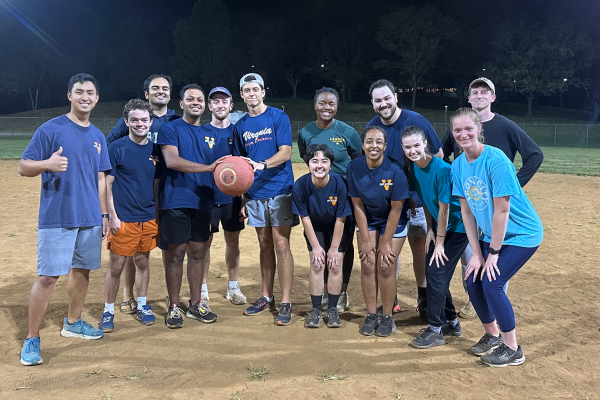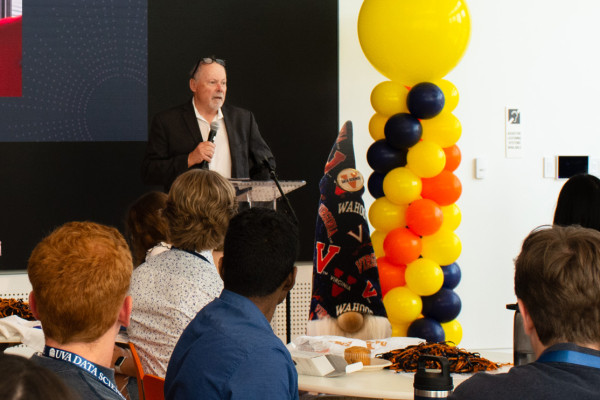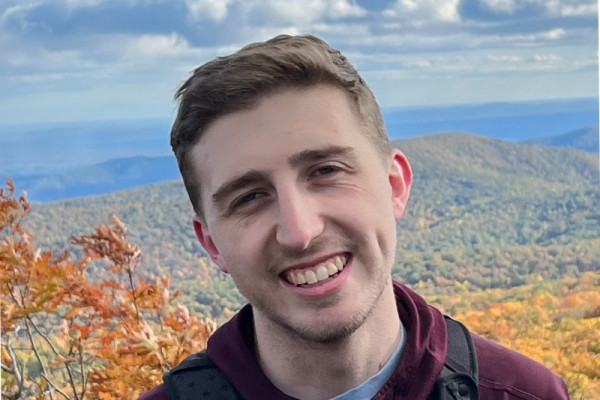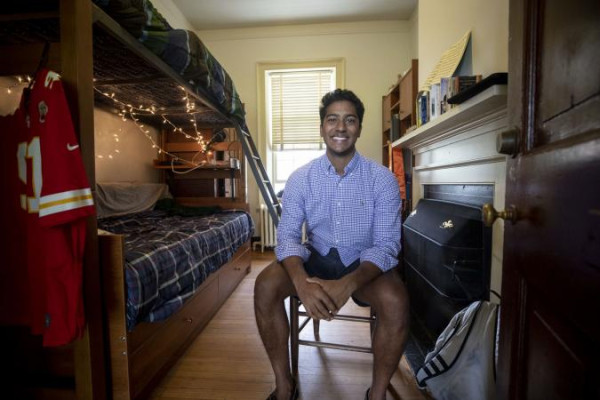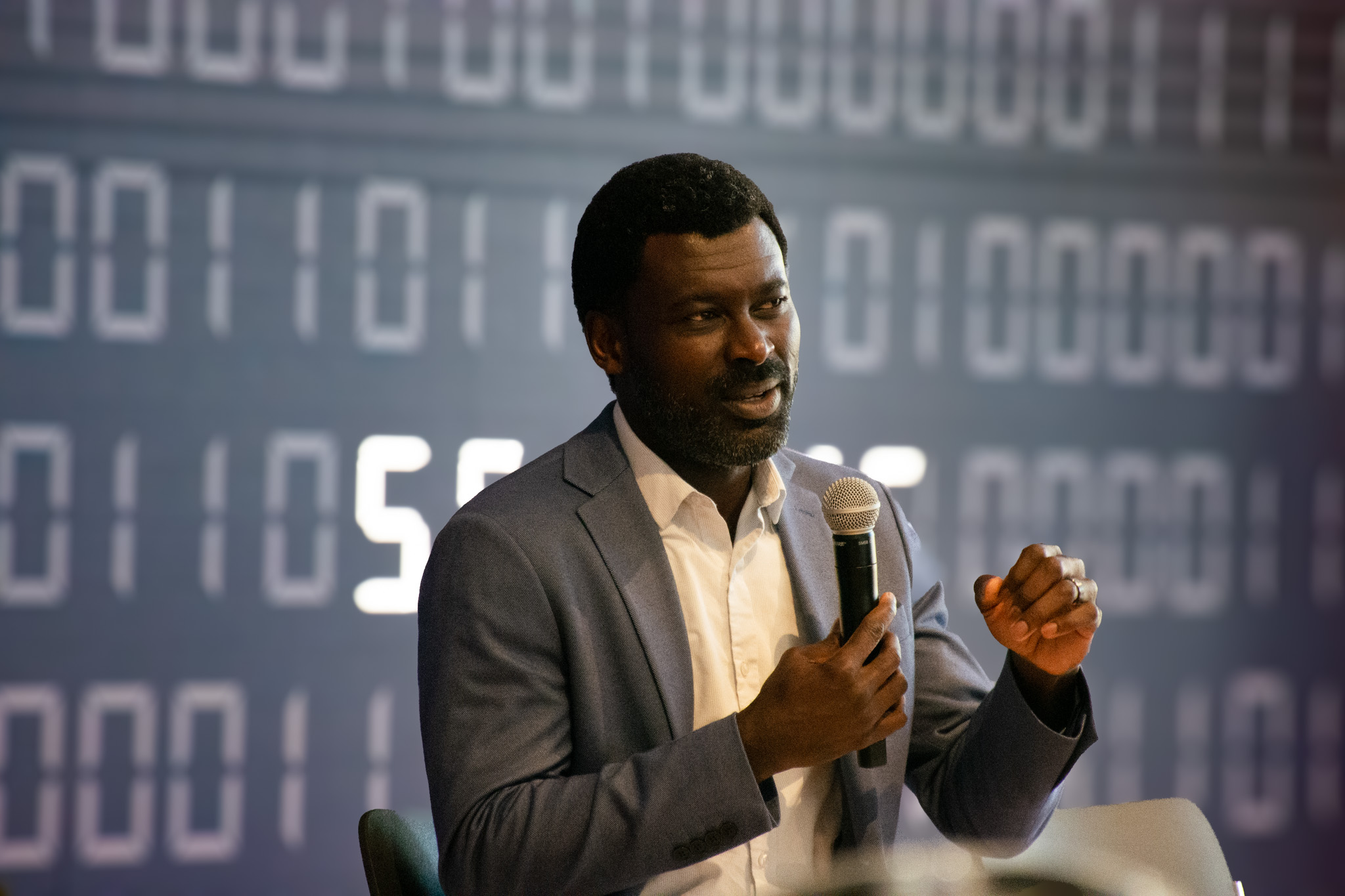
Prospective Data Science Students Get Career Advice During Family Weekend
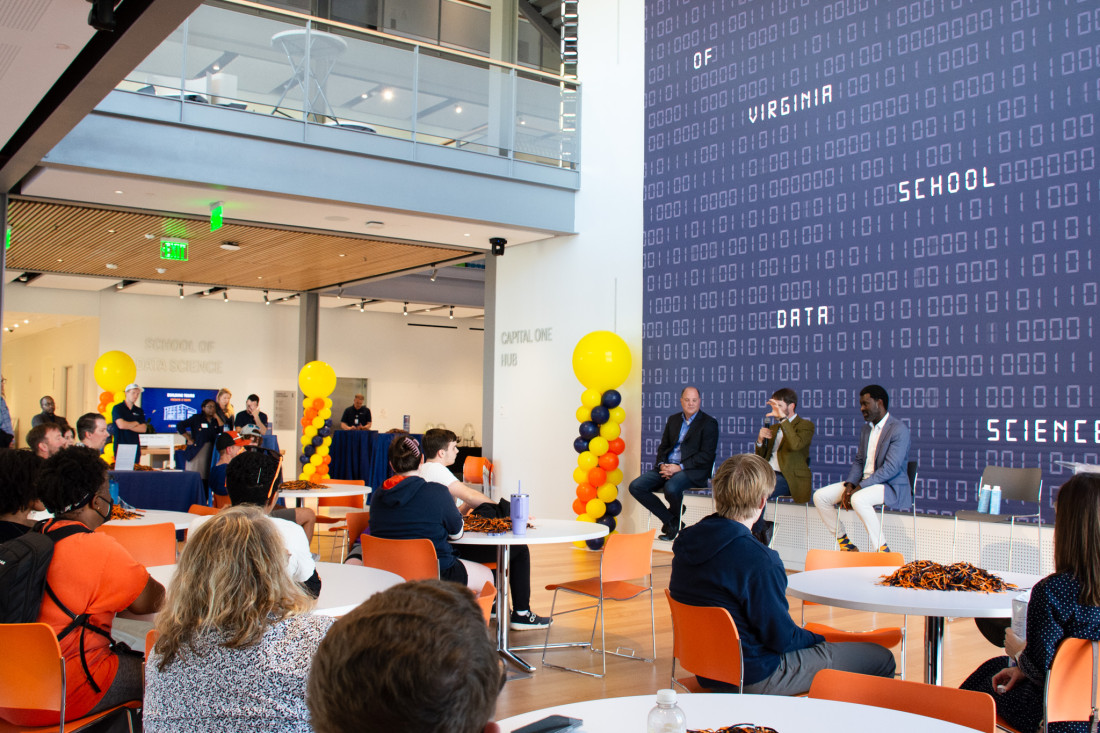
The School of Data Science opened its doors during UVA's Family Weekend to share developments, demonstrate opportunities, and answer questions about the data science major and career paths. Students, parents, families, and faculty were offered tours of the School's new state-of-the-art building and then gathered in the Capitol One Hub to hear from a panel of data scientists.
The panel was moderated by Assistant Director for Career and Professional Development Stephanie Joynes and featured Jeffrey Blume, Quantitative Foundation Associate Dean for Academic and Faculty Affairs in Data Science; Alec Gosse, Senior Director of Data Science at S&P Global; and Prince Afriyie, Associate Professor of Data Science and Program Director for the M.S. in Data Science residential program.
After introductions, Joynes kicked off the Q&A with the foremost question on the minds of parents and students alike: How and where can I use a data science degree?
Blume began by highlighting the vast applications and numerous fields that include data science. “Anywhere there is data, you usually have a data scientist,” Blume said, noting that the world of data science is changing fast.
From his professional perspective, Gosse pointed out that companies that use computers also use data science. He agreed that the field is experiencing a period of redefinition, especially with the innovation of artificial intelligence. Both Gosse and Blume agreed that being a data scientist is an ever-changing target.
Afriyie joined the conversation by sharing that data science is currently the number three top-hiring job in the United States. He pointed out that "gaining insights from data is the fundamental goal of data science." He continued by reading statistics that he had pulled that morning to highlight the industries that are hiring data scientists.

As a data science professor and program director, Afriyie also had insights into the success of students from the M.S. in Data Science (MSDS) program. In the past ten years, MSDS alumni have gone on to work in government, technology, finance, consulting, healthcare, environmental science, international security, retail, and luxury goods. According to Afriyie, workplaces that have hired recent graduates included the Department of Defense, Capitol One, Fannie Mae, and UVA Health.
Joynes then asked the panel what skills students should aim to acquire while at the School of Data Science that could apply directly to their first job. Afriyie said that the master's capstone courses allow students to apply what they learn in the classroom. This includes working with sponsor companies on a real-world problem and giving a final presentation, similar to a professional project.
Gosse said that as someone who hires data scientists, he looks for people with the ability to identify problems and solve them. He added that being realistic about solutions is a strength at his firm. “We want people who can look at a problem and say ‘I can solve this’ or admit ‘you’re delusional, no one can help you,” Gosse said. “I need the analytical side. Can you size up a problem and think out an outcome?”
Joynes next posed the question of ethics, specifically sensitive data like healthcare or mined user actions. “How do ethics play into what you’re teaching? How do we address ethics in the classroom and projects?” she asked.
Blume and Afriyie described how the data science curriculum includes ethics, explaining that students are already exposed to these questions in school, even for undergraduates. “We spend a lot of time thinking about downstream consequences,” Blume said. Afriyie added that including data ethics in its core curriculum is what sets the UVA School of Data Science apart from other programs and institutions.
Gosse lamented that, from a professional standpoint, ethical data science comes from a deep understanding of what models actually involve. “Being the person in the room who understands how the [model] works allows you to understand the effects,” he said.
Joynes pointed out that students are concerned with having a well-rounded resume, not just strong academics. She asked the panel what soft skills students should focus on for a career in data science.
Blume began by saying that hiring companies want great communicators first and foremost. He pointed out that it is essential to be able to communicate complex ideas to those outside the field of data science. “There are all these people who can out-code and out-math you, but the true value is people who know the field and also have the skills to communicate the issues,” Blume said.
Both Gosse and Afriyie agreed that communication is vitally important. Gosse described the importance of being able to bring together different groups of people who do not necessarily understand one another.
Afriyie said that, with these soft skills in mind, the master's program welcomes people from all backgrounds, noting that the current class includes students from 37 different undergraduate majors. “Data science is for everyone,” he said, “not just those people who are good at math and statistics.”
Finally, Joynes asked the panel about the necessity of getting a master's degree to have a data science career.
The panel agreed that while, in general, a master's degree is not absolutely necessary, there are companies and industries that require it, namely technology. Government positions also pay higher if one has a graduate degree. Afriyie cited that the median salary for the 2023 class of MSDS residential graduates was $95,000, with 99% of students securing a job within six months of graduation. The median salary for the MSDS Online class of 2023 was $105,000. Blume also mentioned that the unemployment rate for data scientists is negative, meaning there are more jobs today than workers.
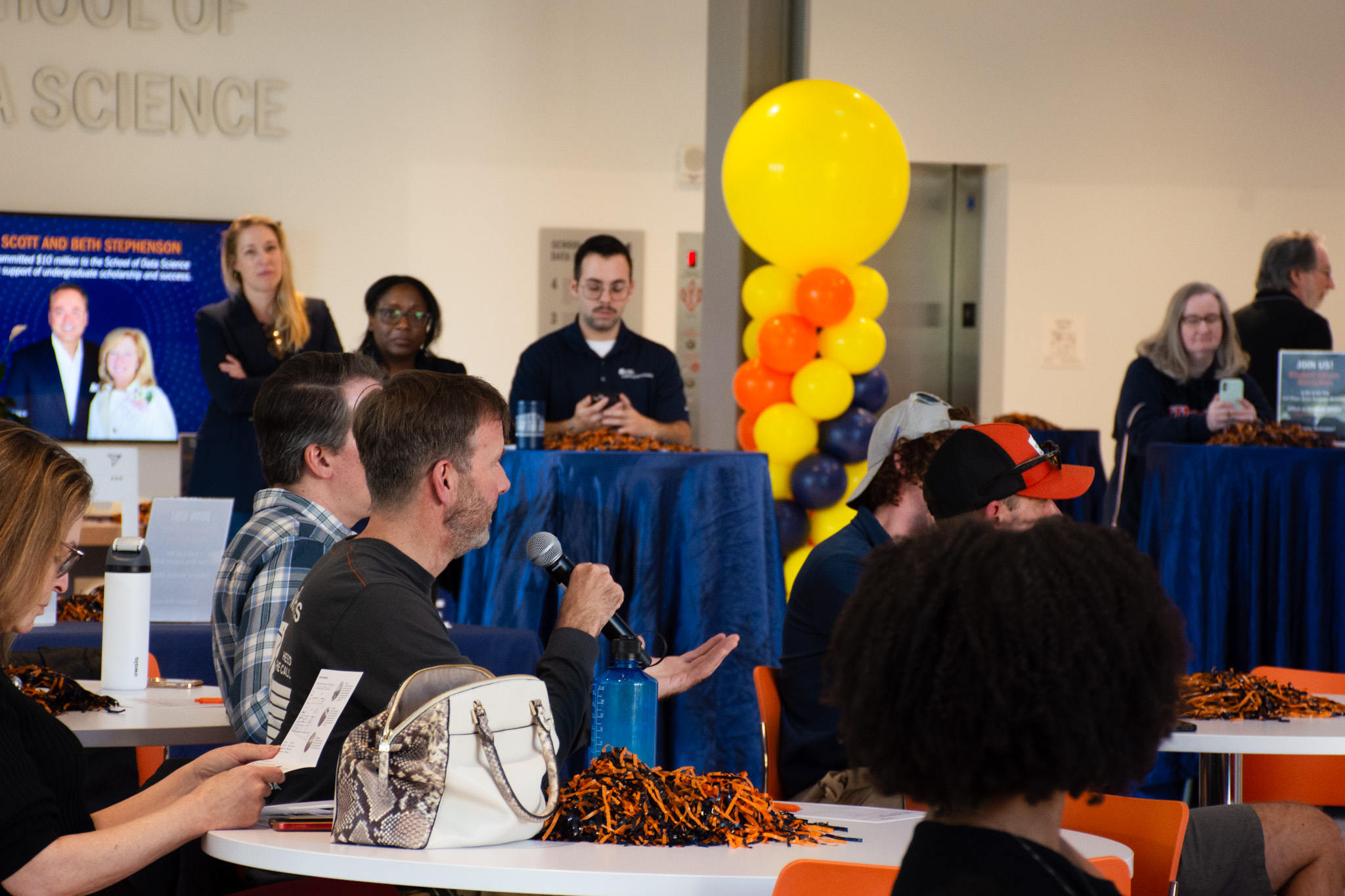
The panel shared their excitement about the new School of Data Science, which became the 12th school at the University in 2019, and welcomed its first undergraduates to the major in Fall 2024. This was the first Family Weekend the School held in its new building. Parents and family members were able to ask questions before breaking for a reception.
Dahlia Hylton, Associate Dean of Student Affairs, and her team organized the open house. “What excites me most about inviting parents and students to the School of Data Science is the opportunity to showcase the breadth of our innovative academic programs and the comprehensive support we provide to our students,” she said.
The event was not only for undergraduates and their families; graduate students were also encouraged to attend. Mason Nicoletti, a B.S. in Data Science student ambassador, shared, "I gained valuable insight into how the UVA School of Data Science degrees are designed to equip me with applied skills and experiences. I was reassured to know these are highly valued by employers and will position me to excel in a career after graduation.”
The panel's anecdotes, answers, and advice underline the growing and diverse field of data science. Current and prospective data science students got a behind-the-scenes look at what it means to be a data scientist and how to set oneself up for a career in the field.
Before concluding the panel, a prospective student in the audience asked what he should focus on learning if admitted to the School. “Have fun. Don’t expect to be taught everything in lecture,” Gosse replied. “Learning goes on outside the classroom as well. So get in those communities and figure it out.”

